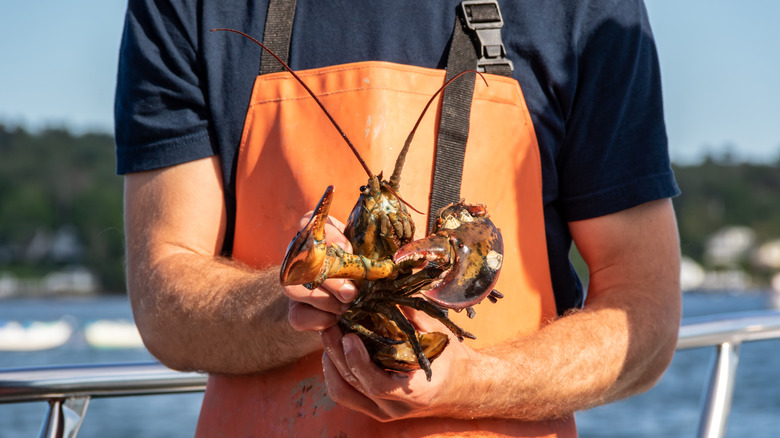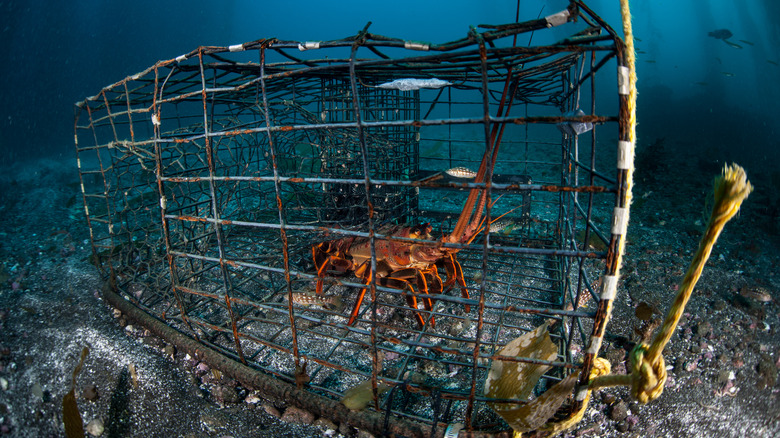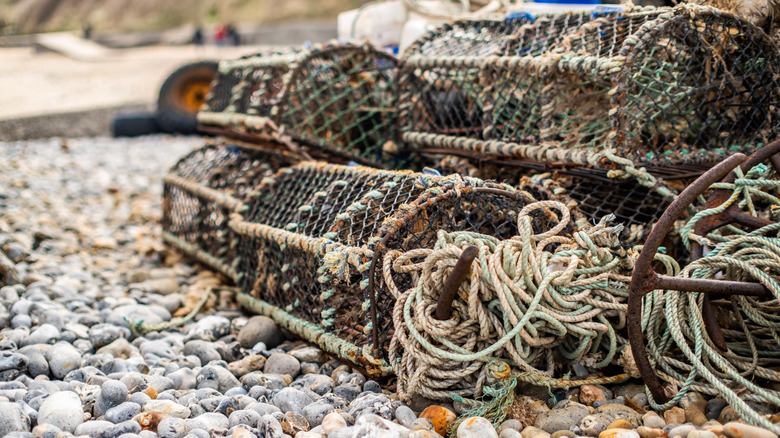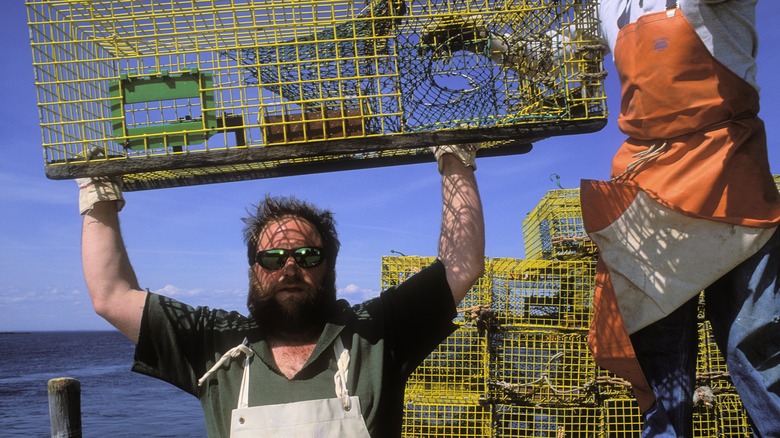What New US Court Ruling Could Mean For The Lobster Industry
Being a whale is not easy — particularly if the whale in question is the North Atlantic right whale, an endangered species. The Associated Press says right whale calves are born near America's southeastern coast, and to forage, these whales usually travel north, toward Canada.
The journey might have been easy to make several hundred years ago. Still, today, the journey exposes whales to threats they cannot avoid — from collisions with cross-continental container vessels to lobster trap entanglements. These hurt both right whales and humpback whales too. As Keenan Ball, an engineer with the Woods Hole Oceanographic Institution (WHOI), put it, "the number of vertical lines in offshore areas is fairly staggering — about 20,000." And biologist Michael Moore adds that "if you're a whale in busy fishing waters, chances are high that you'll get entangled."
North Atlantic right whales are being injured by lobster traps
Once the whales are trapped by lobster fishing lines, some drag the gear with them as they swim around. The ropes are said to "slice into flesh and bone, causing infections, injuries, and partial amputations," per Woods Hole Oceanographic Institution (WHOI). The organization also says swimming with gear is cumbersome, and the whales eventually lose weight from the effort. The Institute quotes the New England Aquarium and the Center for Coastal Studies as saying that as many as 83% of the North Atlantic right whales have scars caused by these ropes and nets.
Given that there are just 340 North Atlantic right whales left, it's not surprising that U.S. District Judge James Boasberg has lashed out at the government for failing to protect the whales, which will become extinct if little to nothing is done. Per The Associated Press, Boasberg ruled that the federal government had violated its own Endangered Species Act and the Marine Mammal Protection Act. The National Marine Fisheries Service did not find that lobster and crab fisheries didn't hurt the right whales, even if it admitted that lobstering rules would likely cause at least three deaths a year, per Maine Public. That, the publication says, is three times more deaths than the right whales can experience before they run the risk of becoming extinct.
Maine has been working to put new lobster trap regulations in place
Boasberg's ruling comes at a time when new rules protecting the right whales were meant to come into effect for Maine's lobster fleet. These regulations include the use of weak lines which can help a whale break free if they are caught, per NPR. New rules also encourage the use of "ropeless gear", which unfortunately costs about $4,000 per trap and makes use of both GPS and audible signals. Traditional lobster traps cost between $80 to $180.
While the regulations were meant to take effect on May 1 of this year, their enforcement was put off, because lobstermen were constrained by their inability to get the materials they needed to be compliant. Like many other industries, they had been hit by supply chain problems. The Press Herald, which reported on the ruling's delayed enforcement, did not say when the industry would finally be ready to wholly adopt the new rules.
When they take effect, regional administrator for the National Oceanic and Atmospheric Administration Michael Pentony says that the rules aren't enough, per Maine Public Radio, since they are meant to cut risks to whales by 60%. He added, "as we got new information late last fall... for the right whale population, we now know that we need a 90% risk reduction."
Conservationists aren't calling the ruling a full victory
Finding a solution might not be easy, but it must be done. The whales themselves need to be protected, just as and the lobstermen have a right to earn a living. Per the Island Institute, Maine's lobster industry generates more than 4,000 jobs on land and on the water, and it makes about 1 billion dollars a year, which is pumped into the state's economy. Of Boasberg's ruling, conservation lawyer Erica Fuller says, "It looks like to me like he is definitely weighing both the odds for the existence of the species and would like to see the fishery continuing," per Maine Public Radio.
The representatives for the Maine Lobstermen's Association didn't offer an immediate reaction to the Boasberg ruling. Department of Marine Resources Commissioner Patrick Keliher said that he was "deeply troubled by the Court's decision and remain committed to supporting the hard-working men and woman of Maine's lobster industry as this legal battle continues. Our attorneys are reviewing the decision so we can better understand the legal ramifications as we consider any and all options that we might have."



